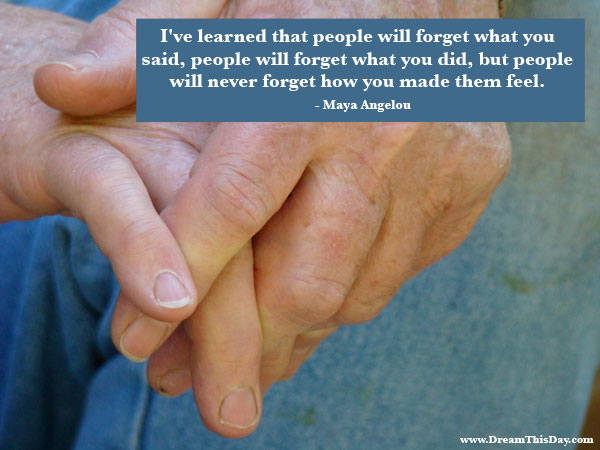After working in global health for over 30 years, Ruth Stark wrote a book to guide her daughter, Taryn, also an aid professional. To celebrate Mother’s Day, I’m sharing a chapter from it, which Ruth graciously agreed to have appear here. (You can see my March review of How to Work in Someone Else’s Country here.)
Ruth writes to articulate the values she wants her child and all aid workers and international do-gooders to embody. How you behave, how you treat people—it matters.
And if you don’t know it by now…our mothers are usually right!
(Happy Mother’s Day Mom!)
***
“How to Make Them Glad That You Are There” from How to Work in Someone Else’s Country
By Ruth Stark
Whether or not your local colleagues wanted you there in the first place, your first job is to make them glad that you have arrived. The following are some dos and don’ts to help you get off to a good start in a foreign land.
DO start with who you are.
People will want to know who you are. In much of the world, this means who you are as a person. This differs from the West, where we start with our titles, university degrees, and job accomplishments. Talk about where you come from. Tell people a bit about your personal and family history, especially about your children. There will be plenty of time to let them know your professional experiences and academic credentials. Be a person first and the consultant part will take care of itself.
DON’T give the answer until you know the question.
Don’t start giving advice the minute you arrive. Take time to get to know the situation. Although you may believe you are well prepared for this assignment and clear about what needs to be done, go slow. You may find that the situation on the ground is far different from what you had anticipated (and different from what you had been told).
Even if you have been correctly briefed and even if you know what needs to be done, you should still resist the urge to start giving advice. Your colleagues in the host country will not appreciate a person who starts spouting the solutions to their problems before they are properly briefed about the situation.
Listen, listen, and listen some more. Gently probe for clarification and then cautiously test your conclusions and advice. Preface remarks with questions such as “Does this make sense to you?” Or “My impression is … but I’m concerned that I may be missing something.”
DO find out who’s who and who does what.
Take the time to learn who the stakeholders are. The stakeholders are the decision makers, your colleagues, and those who are affected by the work you are doing and the recommendations you are making. For your assignment to be a success, many people need to be on board. Find out who these people are and learn their perspective on the work you have been assigned to do.
DO demonstrate your knowledge of (and interest in) local news and events.
When you first arrive, buy the local newspaper and tune in to the local news stations. Reading the front pages will inform you of subjects you can use to “break the ice” in conversations and will alert you to the “hot button” subjects to stay away from, such as political, ethical, and regional issues.
On the “stay away” side, information in the national headlines is good knowledge to have in one’s head but not information to express to others until you are very sure of your facts and your audience. As a way of testing you, people may ask your opinions of these controversial political or regional issues. The wisest course of action is to avoid responding and to switch to another subject.
A good subject to switch to is sports. Read the sports pages and learn the names of the teams, the key players, and the major upcoming events. Many people feel passionate about sports and love to discuss their local heroes. Your knowledge of local sports shows your interest in the country and gives you a topic that can be discussed freely.
Reading the local newspaper and listening to the local news every day is a good way to orient yourself and get off to a good start in your new country.
DO find out what your counterparts expect from you.
 In your discussions with your local colleagues, be alert for clues that indicate what they are expecting from you during this assignment. You may find that your colleagues’ understanding of your assignment differs from yours. You may also find that the various stakeholders each have different expectations of you. Clarifying the expectations of the different stakeholders early in your assignment will prevent misunderstandings and disappointments later on. This is a dynamic process. Don’t be surprised if the expectations change over time, as people get to know you.
In your discussions with your local colleagues, be alert for clues that indicate what they are expecting from you during this assignment. You may find that your colleagues’ understanding of your assignment differs from yours. You may also find that the various stakeholders each have different expectations of you. Clarifying the expectations of the different stakeholders early in your assignment will prevent misunderstandings and disappointments later on. This is a dynamic process. Don’t be surprised if the expectations change over time, as people get to know you.
DON’T rush it.
Often international workers arrive raring to go, with a long list of results and outputs to produce in a short period of time, only to find that their local colleagues don’t feel their same sense of urgency and don’t understand what the rush is.
Don’t be dismayed by the slow pace of your local colleagues. Different people have a different pace, and different cultures have a different sense of time. So don’t be discouraged and think no one cares about your work. That is not necessarily true. It may just be that things in that country move at a different speed.
It may also be that your local colleagues are so overextended that they find the additional work generated by your job more than they can manage. Find out about their other commitments and be reasonable in making demands on their time.
Don’t let the pressures of meeting your target outputs create tensions in your relationships with your colleagues.
DO ask questions, but don’t interrogate.
Some of your stakeholders will be very open and direct in sharing their concerns and perspectives and in telling you what they expect from you. Many will not. For this reason, you will need to watch and listen carefully for the nuances in what they say and do. This takes time and patience.
When you first meet your local colleagues, let them lead the conversation. Then follow up with some general open-ended questions. If you don’t get immediate answers to your specific questions, leave your questions until next time. Don’t let your initial interviews with your foreign colleagues seem like interrogation sessions. Don’t make your colleagues feel like you are pinning them down.
DO beware of assessment tools.
Don’t be a slave to the assessment tools that are so common in projects, with their predetermined set of questions and checklists. For many purposes (research being one possible exception) you can elicit the information you need in a friendly conversational manner, asking open-ended questions. Then if you detect reticence or resistance, you can transition to a different subject.
Confidentiality is never believed and seldom achieved. So asking for information in a written form or in a survey is often perceived as threatening. Unless your project requires it, use other methods for gathering information.
Certain questions are best asked in informal settings–over lunch or when traveling together in the car. Make the most of these opportunities.
DON’T record meetings.
Recording meetings can be very threatening to the people you are working with, particularly those in countries suffering from political unrest, conflict, or oppression. Recording an interview or meeting can also inject an element of distrust into the proceedings. While journalists and social science researchers commonly document information by recording it, this method is not usually appropriate for project international workers.
DO communicate an approachable, friendly attitude.
Your opportunities for informal contacts will be much greater if you are easy to approach and are friendly with your colleagues. If you give the impression of being constantly harried and too intense, no one will want to bother you. So try to lighten up, even if you are under pressure to reach your targets or to produce the deliverables.
DON’T be too high maintenance.
There are some international workers who have excellent skills but are simply not worth the trouble because they make too many demands on their organization and too many demands on their foreign colleagues.
Some workers expect the organization that hired them to “take care” of them; for example, by asking that the organization make arrangements for their holidays and attend to their personal affairs. Others require so much support, encouragement, or time that the organization will think twice before selecting them for another overseas assignment.
International workers can also be too high maintenance for their overseas colleagues. For example, some demand a better working environment than the local standard–a more spacious office, air conditioning, and so on. Other workers expect their local counterparts to take them on shopping trips and to tourist sites, and to help them with their personal errands.
It is one thing if your local colleagues want to socialize with you and offer to help you; it is another thing entirely if you are constantly demanding favors (or giving the impression that you are so helpless that you need them to look after you). This is taking advantage.
The bottom line is this: People who work overseas should be able to take care of themselves and should neither expect nor demand the creature comforts to which they are accustomed in their home country. Avoid becoming labeled as a high-maintenance worker if you want more international assignments.
DO find little ways to be helpful.
When people are working under difficult circumstances–particularly in resource-poor settings–sometimes what they need most is a little practical help. It is often the “little extras” that a worker does to help local staff that are considered the most valued contributions. The “terms of reference” or “statement of work” are often seen as “helping” the organization’s objectives. But it is the personal assistance and help in meeting those objectives that earns the consultant respect among the local staff. The time spent on the little practical help you can provide will be repaid many times over in the cooperation and assistance you will receive in completing your “official” tasks.
Nice, just plain nice, will take you miles.
***
Related Posts
Exchange Visits Among Local Organizations—Here’s How!



very constructive , pragmatic and practical, knowledgeable information and experience that are very helpful for an aid professional to apply and follow for playing effective and efficient roles and responsibilities aiming to reach goals and objectives .
however . it varies from country to country , situation to situation and also depends on nature of work and activities and relationship with host government and the terms of reference, these all are in generic terms, are to be considered very important to follow and address to get better results and expectations and that are to bear in mind in professional dealings and field monitoring and work performance .
in many countries aid professionals do not get better support , face ordeal situation , specially in adverse political and social unrest situation ,get less cooperation and support from concerned counterpart agencies and thus to pass through a very critical situation to reach goals . under such unfavorable situation aid professionals need to be more diligence and perseverance and tactful to keep peace and to create salutary working environment by enhancing better understanding and deliberations .
however , in the world ,aid professionals have been playing a very commendable and critical roles and have to be appreciated for the services they have been rendering towards the most disadvantageous and destitute people across the globe.
I love the note all the way for its educative power. I find it quite useful to my nature of work where often I have to interact with diverse culture communities. Besides, I could borrow a skill or two for my often research-related work. I also discover that the note has a lot of pointers on conflict sensitivity, quite important for development planning and intervention. Thanks Jennifer Lentfer and the PCDN.
I agree with all that’s there in this article. It features all the reality situation in my country. I believe, this article should be read by many who wish to and have been in international development and working in developing countries.
I wish I had had this before I ever ventured into the field! Spot on analysis and stories are well chosen and well told. I am sending this chapter along with recommendations to BUY THIS BOOK to all my comrades in the field and friends in the “business of development.”
Good advices to begin work in this matter, working in a development country and produce results to local communities ,basic education and higher. But first connect to stakeholders and become a team of a happy way to learn together